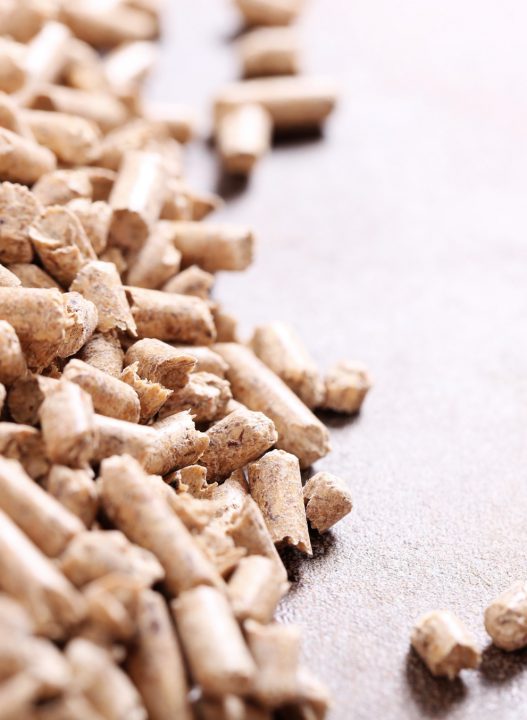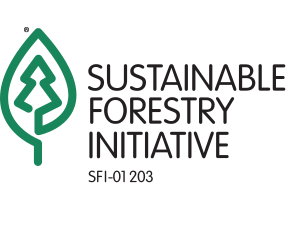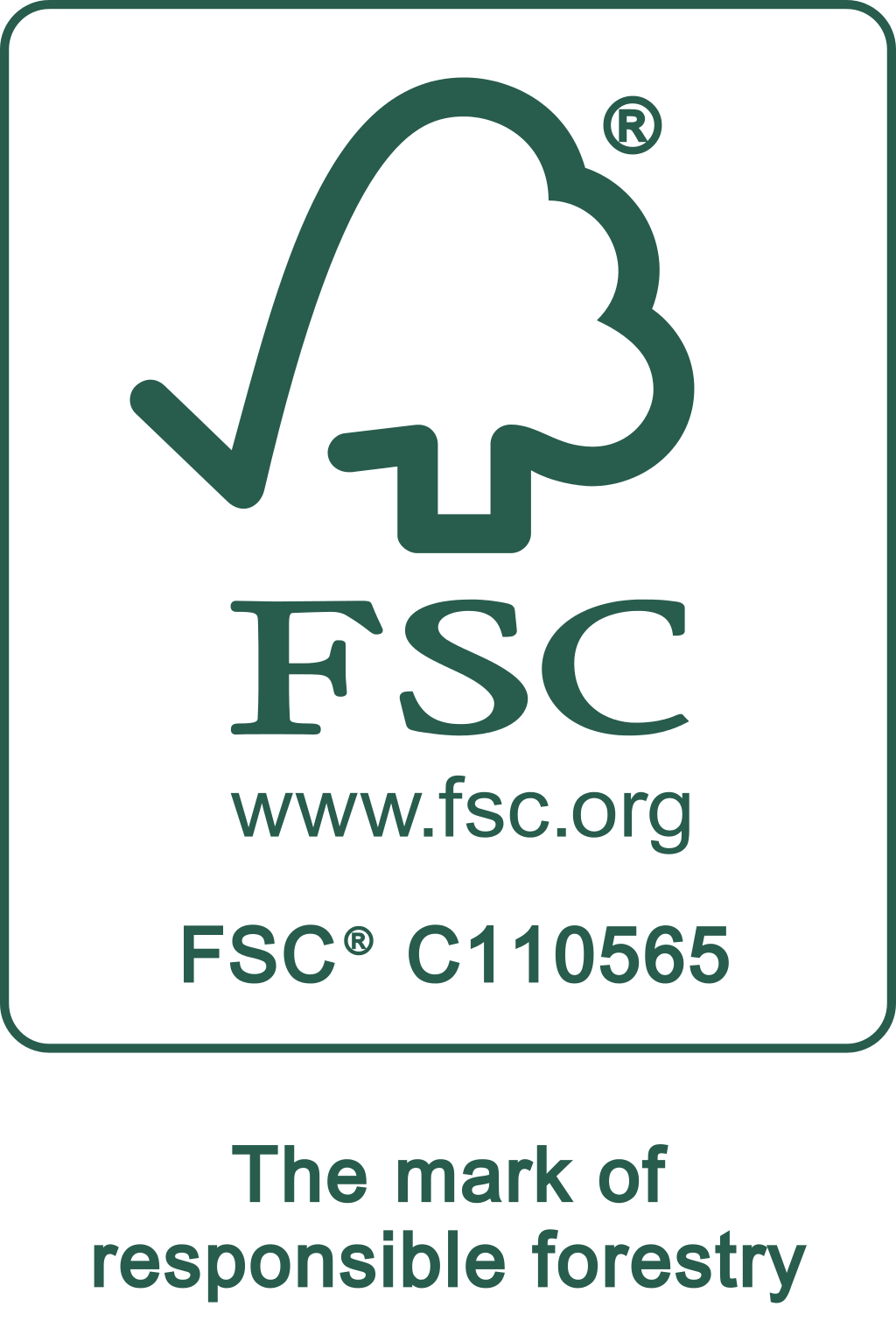Certified to stringent standards
Independent forestry certifications
Enviva is committed to maintaining independent forestry certifications to ensure we meet industry-leading sustainability requirements. Enviva is certified to the Sustainable Forestry Initiative® (SFI®) Fiber Sourcing Standard as well as three separate “chain of custody” standards: the Forest Stewardship Council® (FSC®) Chain of Custody Standard requirements, Sustainable Biomass Standards and the Programme for the Endorsement of Forest Certification (PEFC) Chain of Custody Standard requirements, and the SFI Chain of Custody Standard requirements.
Highest industry standard
Third-party audits
These certifications, which require annual independent third-party audits of our activities and supply chain, are designed to confirm that Enviva adheres to the highest industry standards of responsible fiber procurement, which includes provisions for biodiversity conservation, contractual requirements for the use of forestry Best Management Practices, legal and regulatory compliance, and management oversight and participation in sustainability processes. As part of these certifications, we are committed to avoiding the purchase of controlled wood sources.

Clear guidelines
Controlled wood sources
The following types of wood and wood products are considered unacceptable:
- illegally harvested wood;
- wood harvested in violation of traditional and civil rights;
- wood harvested from forests where high conservation values are threatened by management activities;
- wood harvested from old growth or semi-natural forests being converted to plantations or non-forest use;
- wood from forests in which genetically modified trees are planted; and
- violation of the ILO Declarations on fundamental principles and rights at work.
Meeting sustainable requirements
Fiber sourcing standards
Enviva maintains certification under the SFI Fiber Sourcing Standard. The SFI Fiber Sourcing Standard is for organizations that do not own or manage land but do procure wood directly from forests. To be certified, Enviva must show that the wood we source comes from legal and responsible sources, whether the forests are certified or not. The SFI Fiber Sourcing Standard is based on 14 principles:
- Sustainable Forestry
To practice sustainable forestry to meet the needs of the present without compromising the ability of future generations to meet their own needs by practicing a land stewardship ethic that integrates reforestation and the managing, growing, nurturing, and harvesting of trees for useful products and ecosystem services such as the conservation of soil, air and water quality, carbon, biological diversity, wildlife and aquatic habitats, recreation and aesthetics.
- Forest Productivity and Health
To provide for regeneration after harvest and maintain the productive capacity of the forest land base, and to protect and maintain long-term forest and soil productivity. In addition, to protect forests from economically or environmentally undesirable levels of wildfire, pests, diseases, invasive exotic plants and animals, and other damaging agents and thus maintain and improve long-term forest health and productivity.
- Protection of Water Resources
To protect water bodies and riparian areas and to conform with forestry best management practices to protect water quality.
- Protection of Biological Diversity
To manage forests in ways that protect and promote biological diversity, including animal and plant species, wildlife habitats, and ecological or natural community types.
- Aesthetics and Recreation
To manage the visual impacts of forest operations, and to provide recreational opportunities for the public.
- Protection of Special Sites
To manage lands that are ecologically, geologically, or culturally important in a manner that takes into account their unique qualities.
- Responsible Fiber Sourcing Practices in North America
To use and promote among other forest landowners sustainable forestry practices that are both scientifically credible and economically, environmentally, and socially responsible.
- Legal Compliance
To comply with applicable federal, provincial, state, and local forestry and related environmental laws, statutes, and regulations.
- Research
To support advances in sustainable forest management through forestry research, science, and technology.
- Training and Education
To improve the practice of sustainable forestry through training and education programs.
- Community Involvement and Social Responsibility
To broaden the practice of sustainable forestry on all lands through community involvement, socially responsible practices, and through recognition and respect of Indigenous Peoples’ rights and traditional forest-related knowledge.
- Transparency
To broaden the understanding of forest certification to the SFI 2015-2019 Fiber Sourcing Standard by documenting certification audits and making the findings publicly available.
- Continual Improvement
To continually improve the practice of forest management, and to monitor, measure, and report performance in achieving the commitment to sustainable forestry.
- Avoidance of Controversial Sources including Illegal Logging in Offshore Fiber Sourcing
To avoid wood fiber from illegally logged forests when procuring fiber outside of North America, and to avoid sourcing fiber from countries without effective social laws.
While a very small proportion of the landowners in our forest supply areas have invested in the costly certification process, we purchase certified content whenever possible. In 2018, 23 percent of the wood Enviva received was certified at the forest management level through SFI, FSC, or ATFS standards.
Forest certification
Assisting landowners with forest certification
Timberlands in Enviva’s procurement areas are owned by hundreds of thousands of individuals, families, and corporations. Land certification provides challenges to forest landowners, and Enviva recognizes more needs to be done in our forest supply areas to promote certification. Enviva established an Independently Managed Group under the American Tree Farm System® (ATFS) certification program and a Forest Stewardship Council (FSC) Forest Management Group to assist landowners of all sizes with removing barriers to forest management certification. Through these programs, we actively recruit local landowners to join our landowner groups and work with them to develop management plans and certify their forests.

Raising the bar in sustainable sourcing
Sustainable Biomass Program
Enviva is certified to the rigorous SBP. SBP is a set of standards required of biomass producers selling biomass into the European Union and, increasingly, other countries. This set of standards requires Enviva to have an existing third-party certified chain of custody as a basis. The standards layer on additional requirements to assist our customers in meeting their regulatory requirements. Enviva maintains SBP certifications for all of its production facilities. Enviva also maintains an SBP certificate to broker biomass from other SBP certified producers that can meet Enviva’s additional sustainability requirements.
SBP Standard 1: Feedstock Compliance
This is the standard against which feedstock must be assessed. Feedstock is material entering a pellet or wood chip mill; biomass is the material leaving the mill. The mill is referred to as the biomass producer.
SBP Standard 2: Verification of SBP-Compliant Feedstock
This standard defines how the evaluation of feedstock against Standard 1 should be undertaken; the evaluation is the responsibility of the biomass producer. It also defines which material is exempt from a Supply Base Evaluation.
SBP Standard 3: Certification Systems. Requirements for Certification Bodies.
An independent certification body must check that the evaluation undertaken by the biomass producer meets the SBP framework requirements. This standard defines how the certification body should undertake that.
SBP Standard 4: Chain of Custody
The biomass producer is required to demonstrate the origin of the feedstock. This standard sets out the systems that need to be put in place
SBP Standard 5: Collection and Communication of Data
This standard specifies how data are to be collected and communicated.
To learn more about SBP, its standards, and certificate holders, visit the SBP website.
Progress on certifications
Certified pellet mills
Enviva Ahoskie
View the Supply Base Report supporting our SBP certification for Enviva Ahoskie
Enviva Amory
View the Supply Base Report supporting our SBP certification for Enviva Amory
Enviva Cottondale
View the Supply Base Report supporting our SBP certification for Enviva Cottondale
Enviva Greenwood
View the Supply Base Report supporting our SBP certification for Enviva Greenwood
Enviva Hamlet
View the Supply Base Report supporting our SBP certification for Enviva Hamlet.
Enviva Northampton
View the Supply Base Report supporting our SBP certification for Enviva Northampton
Enviva Sampson
View the Supply Base Report supporting our SBP certification for Enviva Sampson
Enviva Southampton
View the Supply Base Report supporting our SBP certification for Enviva Southampton
Enviva Waycross
View the Supply Base Report supporting our SBP certification for Enviva Waycross
Enviva Lucedale
View the Supply Base Report supporting our SBP certification for Enviva Lucedale


Sustainable Forestry Initiative® Certification
The SFI® program was launched in 1994 as one of the U.S. forest sector’s contributions to the vision of sustainable development established by the 1992 United Nations Conference on Environment and Development. The SFI standard is based on principles and measures that promote sustainable forest management and considers all forest values.

Programme for the Endorsement of Forest Certification
Founded in 1999, PEFC is the world’s largest forest certification system and is the umbrella group for dozens of independent worldwide certification systems. PEFC’s standards seek to transform the way forests are managed globally—and locally—to ensure that all of us can enjoy the environmental, social, and economic benefits that forests offer.

Forest Stewardship Council®
Founded in 1993, FSC® was established to address concerns over deforestation and provides certification for responsible forest management throughout the supply chain. Its mission is to promote environmentally sound, socially beneficial, and economically prosperous management of the world’s forests.
